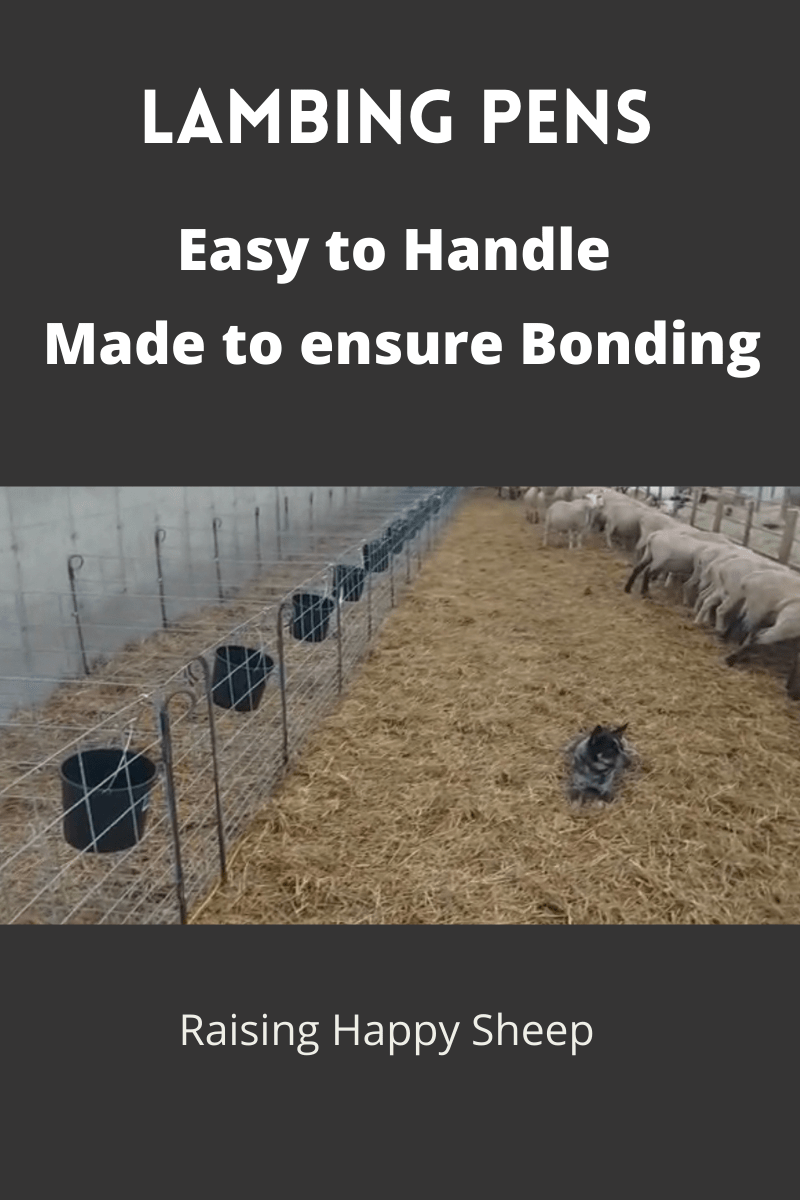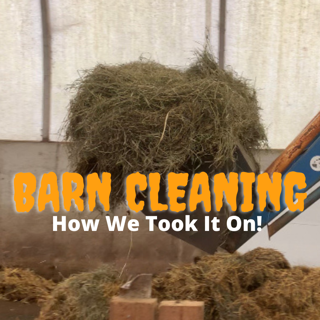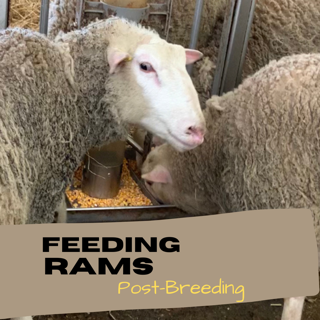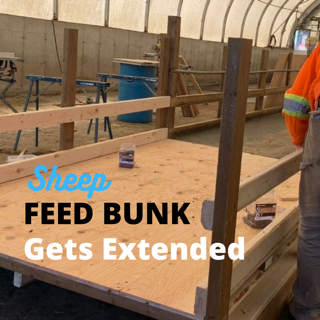Raising Sheep to raise lambs requires the use of lambing pens. We decided on lambing pens built for setting up and taking down with ease. Pens were built using hog panels because they are lightweight. This simplifies handling and storage of the pens.
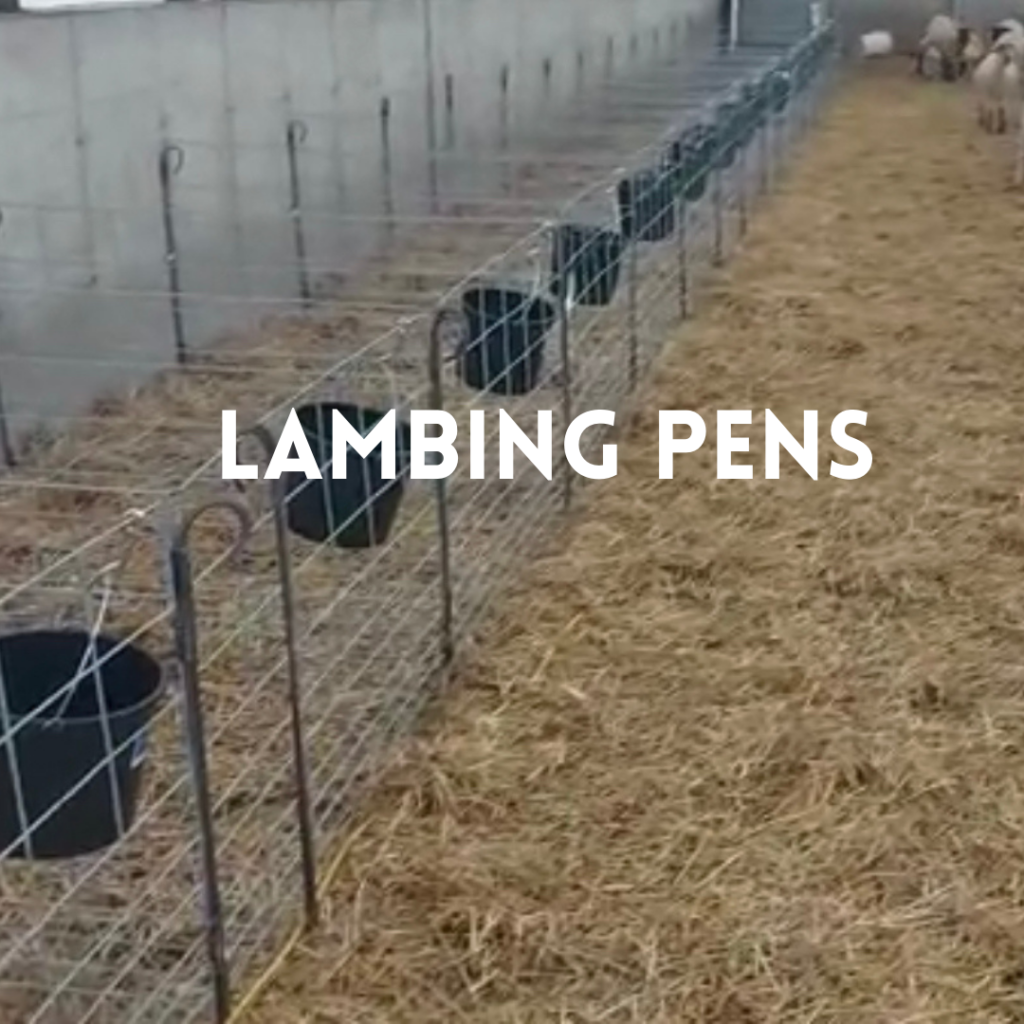
Here’s a glimpse of the inside of the sheep barn with 16 lambing pens set up with water pails.
Pens run along the length of the barn on one side only.
Why Build Lambing Pens?
The ewe needs a few days inside an enclosed pen to ensure she bonds with her lamb(s). Placing the ewe into a pen allows for this. If lambing is to be inside a building, sufficient individual pens are needed to allow each ewe in the group 2 – 3 days individual housing with her lamb(s).
Source: http://www.omafra.gov.on.ca/english/livestock/sheep/facts/98-091.htm
Our Lambing Pens
We built our pens with 2 – 5′ sides attached to 1 – 4′ side. Each panel is attached to the inside wall running the length of our feeding alley. This allowed for 16 pens inside our repurposed coverall barn. As we progess into the lambing season of 101 expecting ewes, we will alter the set up to create a larger pen for ewes and lambs. Once the ewe and lambs have bonded 2 – 3 days in the lambing pens, then they will be removed and placed into a larger pen as a group of ewes with lambs only.
Watch our video to see our lambing pens built setting up and taking down!
How Big Should Lambing Pens Be?
Recommended housing space (square feet) for sheep and lambs
| . | Dirt lot | Open shed | Confinement (dirt floor) | Confinement (slatted floors) |
| Bred ewe | 20 | 8 | 12-16 | 8-10 |
| Ewe with lambs | 25 | 12 | 16-20 | 10-12 |
| Ram | 20 | 8 | 20-30 | 14-20 |
| Feeder lamb | 15-20 | 6 | 8-10 | 4-6 |
| Source: Midwest Plan Service, Sheep Housing and Equipment Handbook, 1982 |

